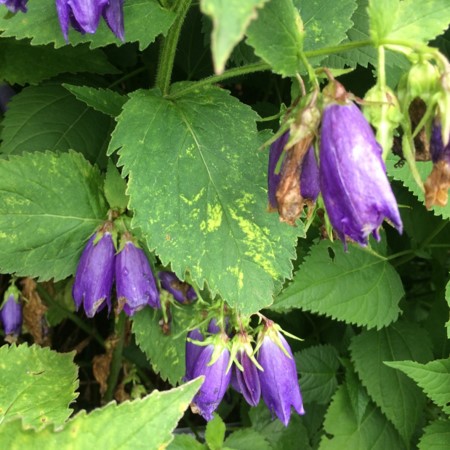By Brian Hudelson, Plant Disease Diagnostic Clinic

May is a prime time to visit your local greenhouse, nursery or garden center to buy annuals, perennials and vegetables for your home garden. Unfortunately, these plants can be carriers of plant disease-causing organisms. Here are some pointers on what to look for when buying plants.
- Select plants that are vigorously growing, but aren’t overly leggy. Stunted plants often have diseases(e.g., root rots or viral diseases). Leggy plants may be healthy, but often have growth that is wimpy and easily injured. Injured tissue can provide entry points for plant pathogens.
- Avoid plants with brown leaf spots. Dead spots on leaves can indicate fungal or bacterial infections. The pathogens involved continue to reproduce in these areas and can spread on the plant,and potentially to other plants.
- Avoid plants with odd leaf coloring.Some plants have variegated foliage. That’s normal. However, if you see plants with unexpected blotchy light and dark-colored leaves,yellow lines or yellow ring patterns, avoid these. They may be infected with a virus.
- Avoid plants with fuzzy growth on the leaves. Such growth typically indicates a fungal or water mold infection. For example, white growth on upper and lower leaf surfaces can indicate a powdery mildew problem; white, gray or purplish growth on the undersides of leaves is typical of a downy mildew disease.
- Choose plants with healthy, white roots. Examine plant roots whenever possible. If roots are brown or otherwise discolored, root rots or some sort of physical root injury (e.g., heat injury) may be an issue.
With just a little care, you can buy healthy, pathogen-free plants that will provide months, if not years, of gardening enjoyment.
If after exploring this website, you have questions about Plant Disease services feel free to contact the clinic at 608-262-2863 or bdh@plantpath.wisc.edu.




